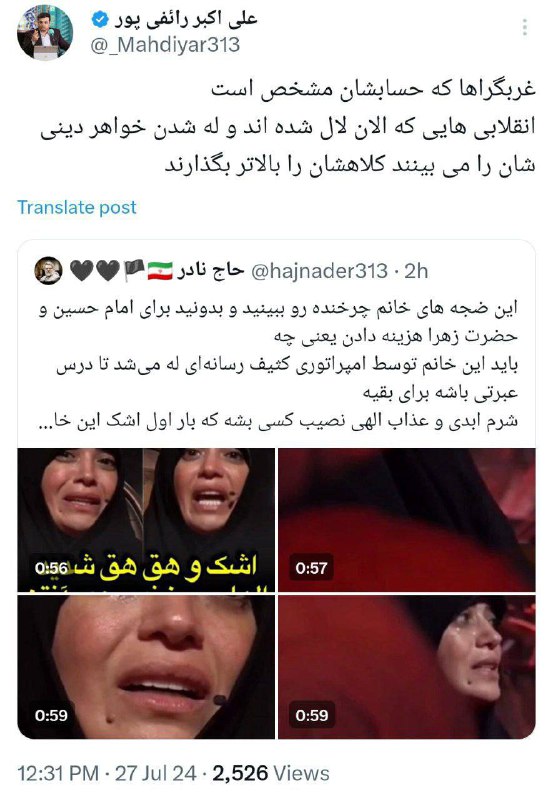Forwarded from Masaf | مؤسسه مصاف
👤 توییت استاد #رائفی_پور
✍ غربگراها که حسابشان مشخص است.
🔹انقلابیهایی که الان لال شدهاند و لهشدن خواهر دینیشان را میبینند، کلاهشان را بالاتر بگذارند.
🔗 لینک توییت
☑️ @Masaf
✍ غربگراها که حسابشان مشخص است.
🔹انقلابیهایی که الان لال شدهاند و لهشدن خواهر دینیشان را میبینند، کلاهشان را بالاتر بگذارند.
🔗 لینک توییت
☑️ @Masaf
group-telegram.com/emamzaman131/71
Create:
Last Update:
Last Update:
👤 توییت استاد #رائفی_پور
✍ غربگراها که حسابشان مشخص است.
🔹انقلابیهایی که الان لال شدهاند و لهشدن خواهر دینیشان را میبینند، کلاهشان را بالاتر بگذارند.
🔗 لینک توییت
☑️ @Masaf
✍ غربگراها که حسابشان مشخص است.
🔹انقلابیهایی که الان لال شدهاند و لهشدن خواهر دینیشان را میبینند، کلاهشان را بالاتر بگذارند.
🔗 لینک توییت
☑️ @Masaf
BY برای امام زمان(عج)

Share with your friend now:
group-telegram.com/emamzaman131/71
